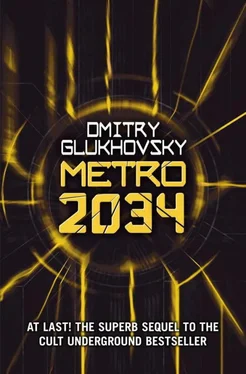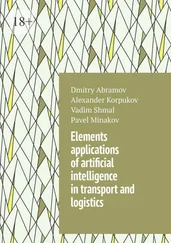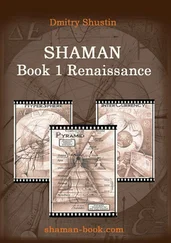Homer regarded the line between Sebastopol and Nakhimov Prospect as very tricky. The rules of safety and plain common sense required them to stick together, moving slowly and cautiously, examining the walls and the floor ahead of them closely. Even in this stretch of tunnel, where all the hatches and cracks had been bricked up and triple-sealed by engineering teams from Sebastopol, on no account could they afford to leave their rear uncovered. The darkness sliced open by the beam of the flashlight closed up again right behind their backs, the echoes of their footsteps fractured as they were reflected off the reinforcing ribs of countless sections of tunnel lining, and somewhere in the distance the wind howled, trapped in the ventilation shafts. Large, viscous drops gathered in cracks in the ceiling and fell – perhaps they were just water, but Homer tried to dodge them. Not for any particular reason – just in case.
In olden times, when the bloated monster of a city on the surface still lived its own feverish life, and the restless city-dwellers still thought of the Metro as a soulless transport system – back in those days the youthful Homer, who everyone still called Kolya, used to wander through its tunnels with a flashlight and a metal toolbox.
Entry to those places was barred to ordinary mortals, whose access was restricted to the 150 or so marble halls, polished to a high gleam, and the congested carriages, pasted with bright-coloured advertisements. The millions of people who spent two or three hours in the rumbling, swaying trains every day were unaware that they were only permitted to see a mere tenth of this incredibly vast underground kingdom that extended far and wide below the surface. And to make sure they didn’t start speculating about its true size and where all those inconspicuous little doors and iron shutters led to, or where the dark little branch-lines and connecting passages closed for never-ending repairs actually went, they were distracted by pictures bright enough to dazzle their eyes, provocatively stupid slogans and wooden-voiced commercials that prevented them from relaxing on the escalators. At least, that was how it seemed to Kolya after he first started penetrating the secrets of this state within a state. The frivolous rainbow-coloured schematic of the metro that hung in the carriages was intended to convince the curious that they were looking at an exclusively civilian system. But in reality its cheerfully coloured lines were intertwined with the invisible branches of secret tunnels, from which military and state bunkers dangled like bunches of grapes – and some stretches of tunnel linked up with the tangled catacombs dug under the city by ancient pagans.
During the early days of Kolya’s youth, when his country was too poor to vie with the power and ambition of others, Judgement Day had seemed very far off, and the bunkers and shelters built in anticipation of its arrival had gathered dust. But money brought the return of former arrogance and, with it, of enemies. The rustcoated, multi-ton doors of cast iron were opened again with a rasping creak, the stocks of food and medications were renewed, the air and water filters were rendered fully operational.
And all just in the nick of time.
For Kolya, a poor young man from out of town, to be accepted for a job in the Metro was like joining a Masonic lodge. It transformed him from an unemployed reject into a member of a powerful organisation that paid generously for the modest services he was able to provide and promised to initiate him into the arcane mysteries of the universe. The wages offered in the job announcement seemed very tempting to Kolya, and almost no requirements were specified for would-be trackwalkers.
It was some time before he began to understand, from the reluctant explanations of his new colleagues, just why the Metropolitan was obliged to entice employees with high salaries and bonus payments for occupational hazards. It wasn’t a matter of a heavy schedule, or the voluntary renunciation of daylight. No, it had to do with dangers of an entirely different kind.
Homer had a sceptical mind, he didn’t believe in the ever-present dark rumours of ghosts and ghouls. But one day his friend failed to return from checking a short dead-end stretch of tunnel, and for some reason they didn’t bother to search for him – the shift foreman just shrugged helplessly. And his friend’s disappearance was followed by the disappearance of all the documents testifying that he had ever worked in the Metro. Kolya was the only one still so young and naïve that he refused to accept this disappearance and eventually one of his senior colleagues whispered in his ear, gazing around as he did it, that his friend had been ‘taken’. So who, if not Homer, should know that bad things used to happen in Moscow’s subterranean depths long before life in the megalopolis died, scorched by the withering breath of Armageddon.
After losing his friend and being initiated into forbidden knowledge like that, Kolya could have taken fright and run, abandoned this job and found another. But instead, his marriage of convenience with the Metro developed into a passionate love affair. When he’d had his fill of wandering around the tunnels on foot, he underwent the rites of initiation as a driver’s mate and established himself in a more solid position in the complex hierarchy of the Metropolitan.
And the better he got to know this unacknowledged wonder of the world, this labyrinth with a nostalgic yen for antiquity, this ownerless, cyclopean city that was an inverted reflection in the brown Moscow earth of its prototype up above, the more deeply and selflessly he fell in love with it. This man-made Tartarus was indisputably worthy of the poetry of the genuine Homer, or at least the fleet pen of Swift, who would have seen it as a greater joke than Laputa. But the man who became its secret admirer and artless singer was Kolya – plain, simple Nikolai Ivanovich Nikolaev.
It was absurd.
Anyone reading the Russian folk tale The Stone Flower might feel that he could love the Mistress of the Copper Mountain – but love the Copper Mountain itself? And yet the day came when Kolya’s love was requited with a jealous passion that took away his family, but saved his life.
Hunter froze abruptly on the spot and Homer, hunkered down under his snug feather quilt of memories, had no time to pull back: the old man ran into the brigadier’s back at full tilt. Without making a sound, the brigadier flung him aside and froze again, lowering his head and turning his mutilated ear towards the tunnel. Like a bat mapping out space in its blindness, he was picking up wavelengths that only he could hear.
But Homer picked up something else: the smell of Nakhimov Prospect, a smell that was impossible to confuse with any other. They’d certainly got here quickly. He just hoped they wouldn’t be made to pay for the ease with which they’d been let through. As if he could hear Homer’s thoughts, Ahmed shrugged the sub-machine-gun off his shoulder and clicked off the safety catch.
‘Who’s that up there?’ Hunter suddenly boomed, turning to the old man.
Homer chuckled to himself: who could tell what hellish beasts they might find? The wide-open gates of Nakhimov Prospect were like a funnel, sucking in from above creatures that defied the imagination. But the station had its permanent residents too.
‘Small… With no hair,’ said the brigadier, trying to describe them, and that was enough for Homer. It was them.
‘Corpse-eaters,’ he said in a low voice.
From Sebastopol to Tula, and maybe in other parts of the Metro as well, this old, clichéd Russian insult now had a different, new meaning. A literal one.
‘Predators?’ asked Hunter.
‘Scavengers,’ the old man replied indecisively.
Читать дальше











